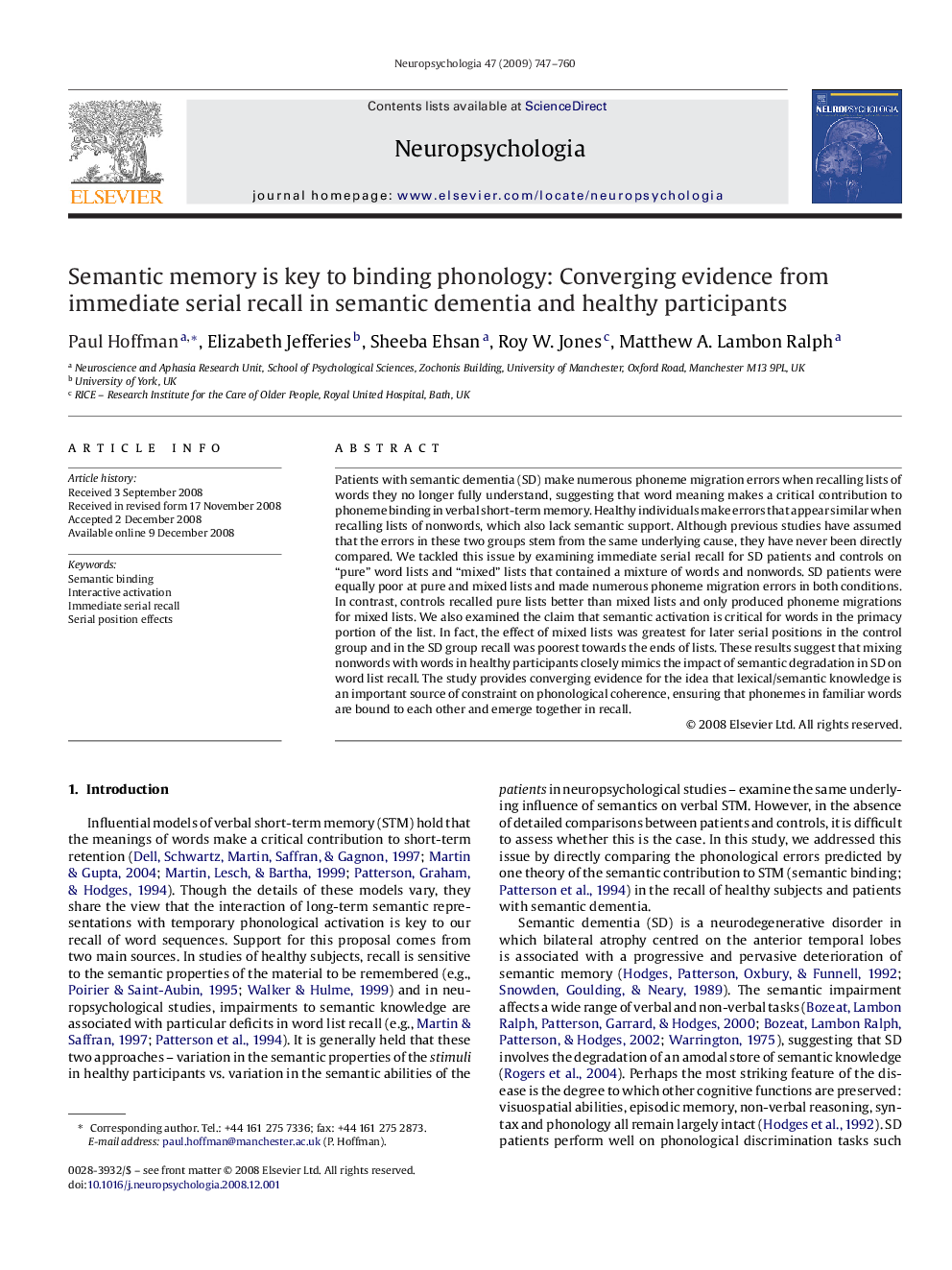| Article ID | Journal | Published Year | Pages | File Type |
|---|---|---|---|---|
| 945324 | Neuropsychologia | 2009 | 14 Pages |
Patients with semantic dementia (SD) make numerous phoneme migration errors when recalling lists of words they no longer fully understand, suggesting that word meaning makes a critical contribution to phoneme binding in verbal short-term memory. Healthy individuals make errors that appear similar when recalling lists of nonwords, which also lack semantic support. Although previous studies have assumed that the errors in these two groups stem from the same underlying cause, they have never been directly compared. We tackled this issue by examining immediate serial recall for SD patients and controls on “pure” word lists and “mixed” lists that contained a mixture of words and nonwords. SD patients were equally poor at pure and mixed lists and made numerous phoneme migration errors in both conditions. In contrast, controls recalled pure lists better than mixed lists and only produced phoneme migrations for mixed lists. We also examined the claim that semantic activation is critical for words in the primacy portion of the list. In fact, the effect of mixed lists was greatest for later serial positions in the control group and in the SD group recall was poorest towards the ends of lists. These results suggest that mixing nonwords with words in healthy participants closely mimics the impact of semantic degradation in SD on word list recall. The study provides converging evidence for the idea that lexical/semantic knowledge is an important source of constraint on phonological coherence, ensuring that phonemes in familiar words are bound to each other and emerge together in recall.
